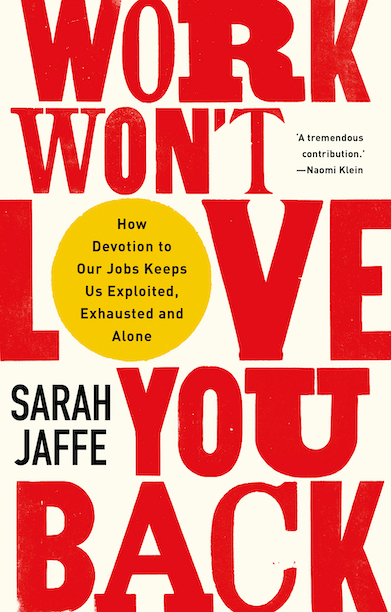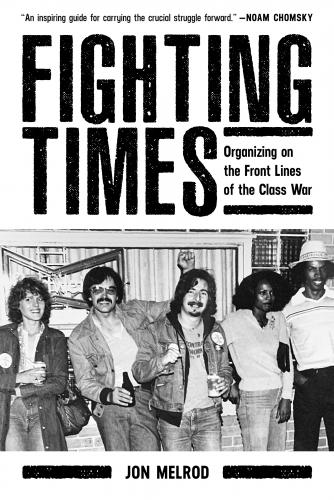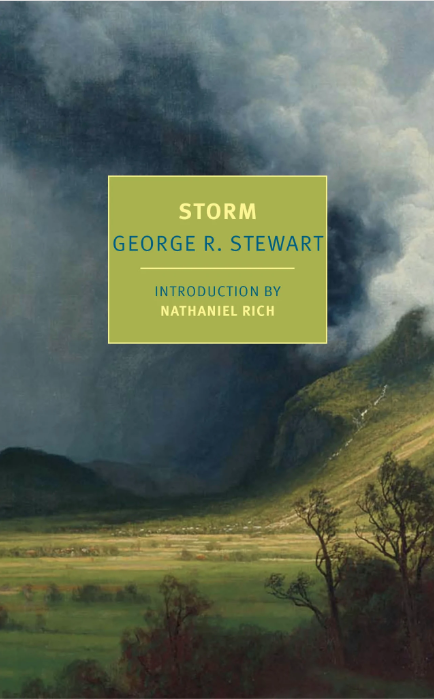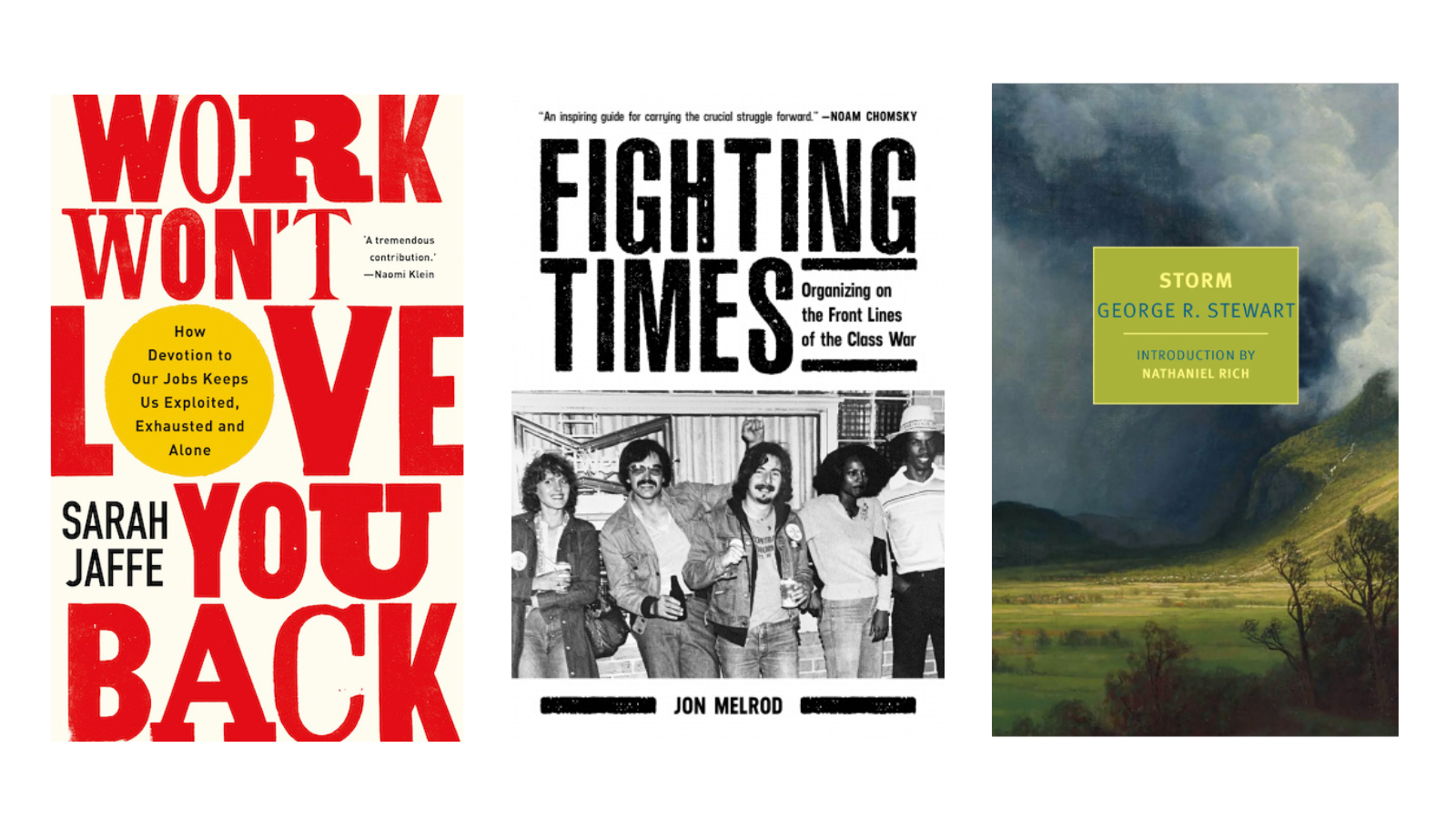Welcome to the Reading Roundup, a forum for ATX DSA members to share what they’ve been reading and how it’s informing their political education.
Work Won’t Love You Back
by Sarah Jaffe

“The idea that work should be a source of fulfillment has become common sense in our world, to the extent that saying otherwise is an act of rebellion.” With Work Won’t Love You Back, labor journalist Sarah Jaffe turns our “do what you love and you’ll never work a day in your life” world upside down.
Jaffe divides ten chapters into two “labor of love” types: care sectors demanding devotion to others (the family, domestic work, education, retail, and nonprofits), and professions demanding devotion to the work itself (art, internships, academia, technology, and sports). It’s no accident that the first worker profiled is single mother Ray Malone, whose reproductive labor is scarcely underwritten by a means-tested, stigmatizing UK welfare system. Everywhere she looks, Jaffe illuminates the pivotal role of gender in valuing and devaluing work and its requisite skills.
Beginning each chapter with an individual worker’s story, Jaffe zooms out to unveil the economic, social, and political currents that have formed the ground they stand on, guiding us through decades of complex developments with remarkable concision. Weaving social movements, deindustrialization, and neoliberalism together with finer strands of historic detail, the book is a map of modern capitalism for anyone who has ever sold their care or their creativity to pay the rent. When she returns the focus to her protagonists, it’s to tell their stories of finding power, with each recognizing struggles bigger than themselves and organizing for dignity. She invites us to join them in making the road toward a future for our whole humanity, a world that will love us back.
—Mike C.
Fighting Times: Organizing on the Front Lines of the Class War
by Jon Melrod

Many socialists in the 1960s and 70s recognized that the terrain where the working class holds the most power is on the job. Taking the experience they had gained organizing for civil rights and women’s rights, against the US invasion of Viet Nam and for student power, they got union jobs. Working in auto, freight, mining, telecoms and other critical industries, they aimed to build class struggle unions in the bureaucratic shibboleths that evolved over the previous decades.
Jon Melrod, whether supporting the Vietnamese abroad or the Black Panther Party at home, attracted the attention of the FBI early for his revolutionary beliefs. They began harassing him while he was still in college and pursued him for years, telling multiple employers of his leftist activism. They got him fired, but Melrod fought and eventually won his job back at American Motors Corporation (later bought by Chrysler, now Stellantis).
Over his years at AMC, he fought against company repression, racism and sexism as well as lazy or sell-out union leaders. Central to building an active caucus, Melrod helped rebuild the historic militancy of the UAW local at AMC in Kenosha, Wisconsin. He understood that to succeed, it couldn’t be about Jon Melrod but had to be run by an active union membership. He reached across the race and gender lines and built alliances with older white militants as well. They succeeded in numerous fights to reclaim workers’ power to control the shop floor in ways given up by the UAW at the big three.
Every young modern labor activist should read this book. We can learn from Melrod’s wins, but he also made mistakes which he freely acknowledges so we can learn from those as well.
—Joshua F.
Storm
By George R. Stewart

The 1941 novel Storm by George R. Stewart is credited by New York Review Books as being the first “eco-novel.” Eco-fiction is a genre defined by the use of the nonhuman environment as more than just a plot device, but as a character with its own dynamism and agency, and the decentering of human stories as the only ones with legitimacy (dragonfly.eco). The protagonist of Storm is, as the title suggests, a massive storm that appears over the Pacific just off the coast of Japan. A new Junior Meteorologist at the San Francisco office of the United States Weather Bureau (precursor to the National Weather Service) calls it an “incipient little whorl” and affectionately dubs it Maria [pronounced “muh-rye-ah”]. The novel then follows Maria over the course of twelve days as it matures, brings torrential rain to a drought-stricken California, and ultimately fizzles away just as a new storm is birthed from its remnants and descends upon the east coast of North America. Though it may be apocryphal, Stewart’s Storm is often referred to as the impetus for the National Hurricane Center to begin naming major storms in 1953.
There is a secondary protagonist in Storm, however. The working class permeates the novel like so many droplets of water surrounding stones in a stream. Few human characters have names besides their titles—Chief Meteorologist, Highway Superintendent, and so on—yet the whole of their efforts wafts off the pages in a symphony of labor. Highway workers prepare their snow plows to clear the high Sierra passes. Railroad crews clear tracks ahead of important trains and repair bridges that have been swept away by flooding. Linemen race out in the downpour to repair downed lines at the same time as switchboard operators seamlessly reroute signals around the broken connections. Through each of them, Stewart acknowledges that their task contributes to a goal greater than the sum of their individual lives. Such is the cause of labor.
By the end of the novel, the storm has passed on. Sunny days follow and the Earth continues turning. Maria has claimed the lives of many: sailors in the Pacific, at least one lineman in California, a couple caught driving through the snow, one particularly unlucky boar. While Storm rejects anthropocentrism, the fact remains that Maria has passed and most of the people she impacted live to tell the tale. Thanks to the combined labor of thousands, humankind is able to continue on.
—Gumbo
Interested in making a contribution to next month’s Reading Roundup? Send a 250-word blurb to redfault@austindsa.org!

